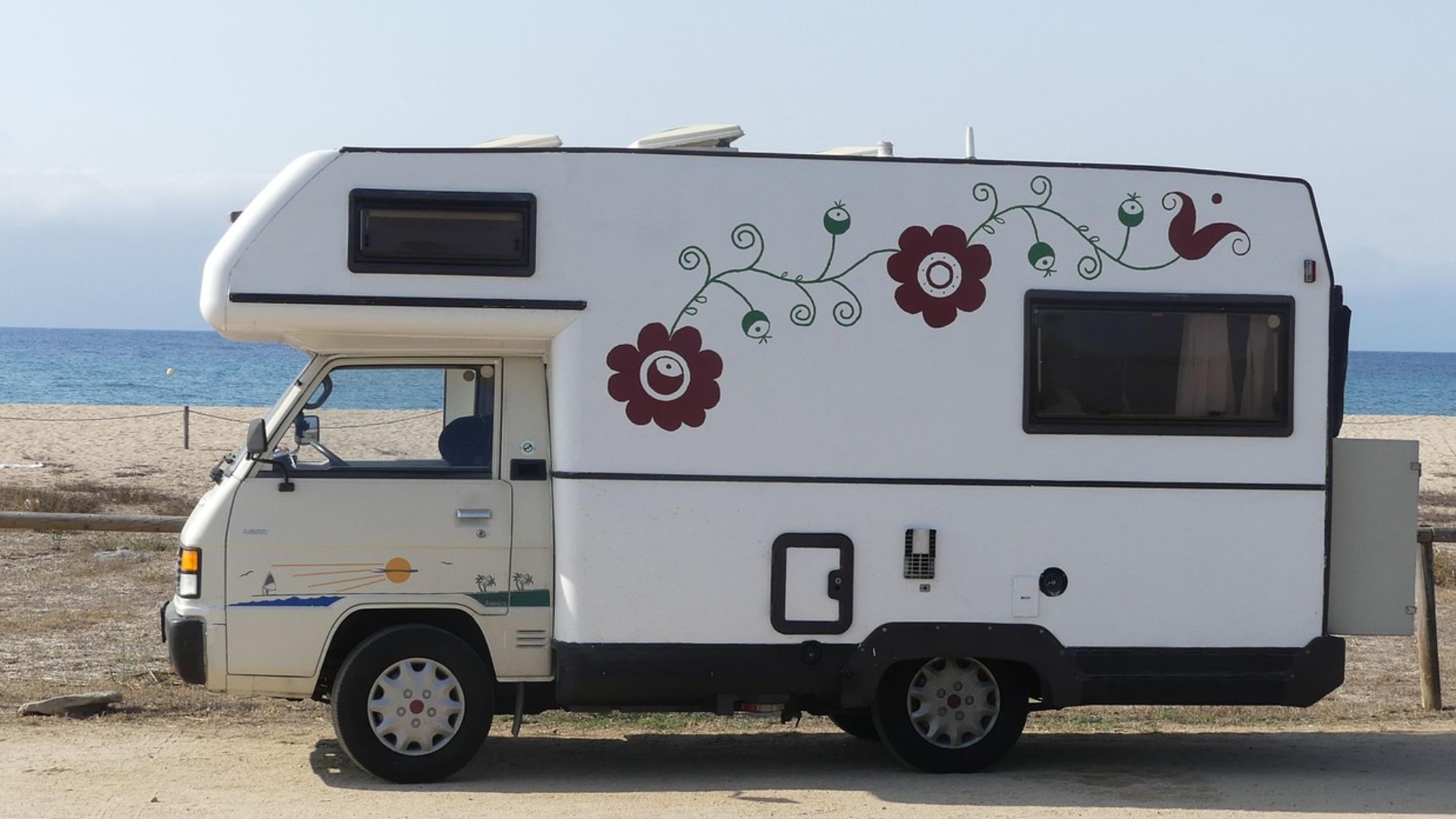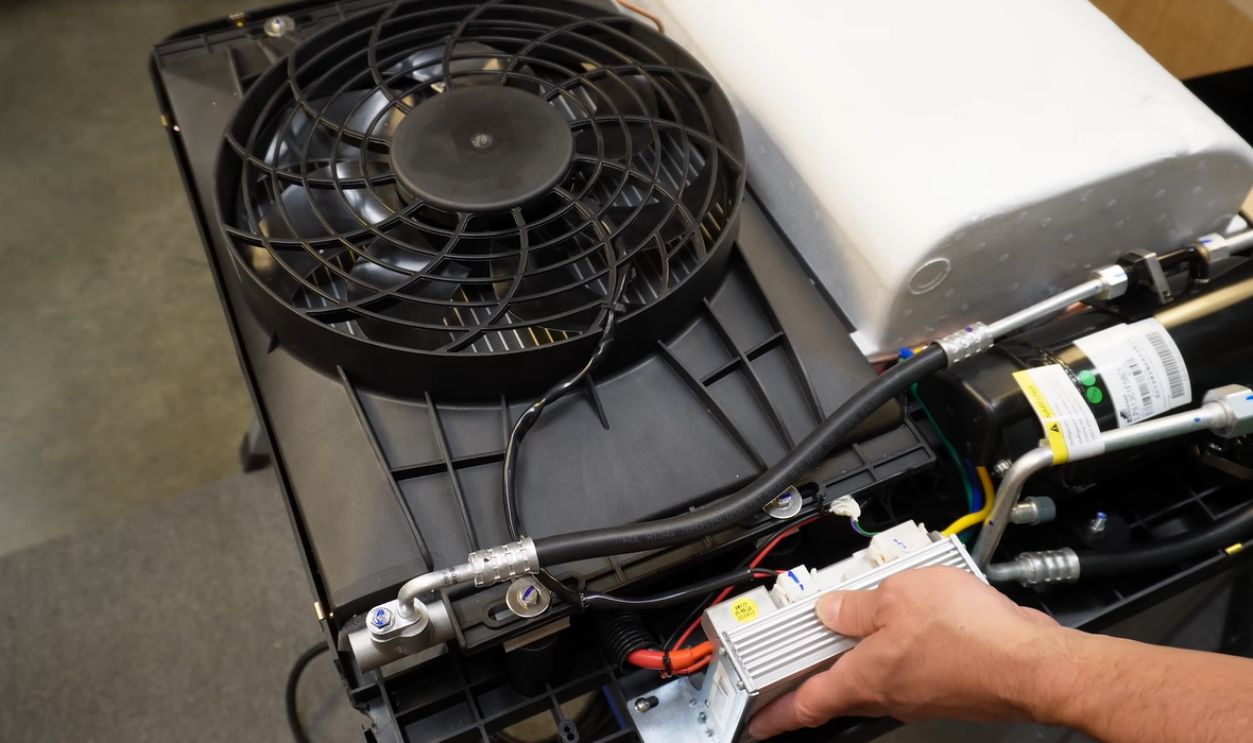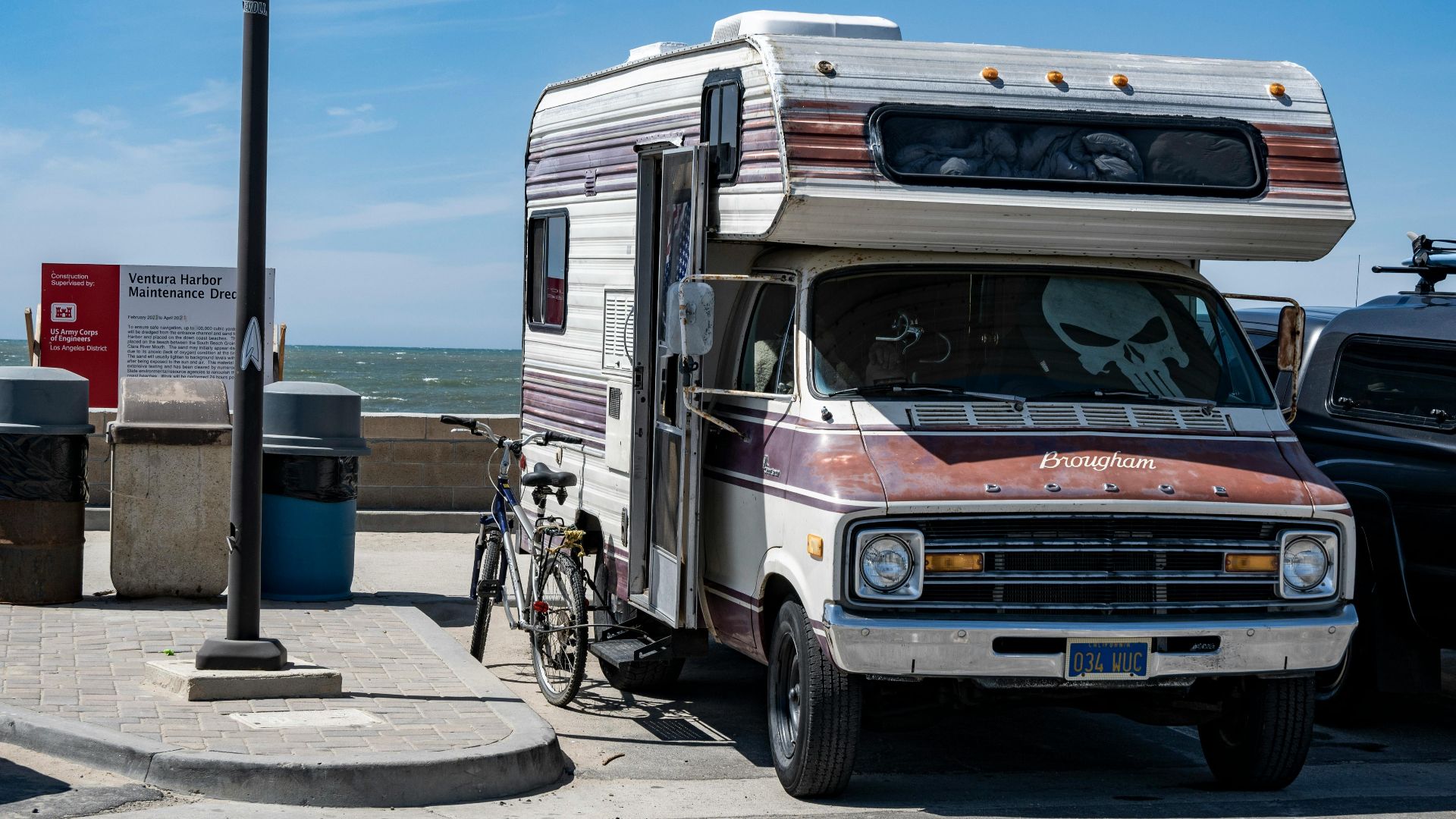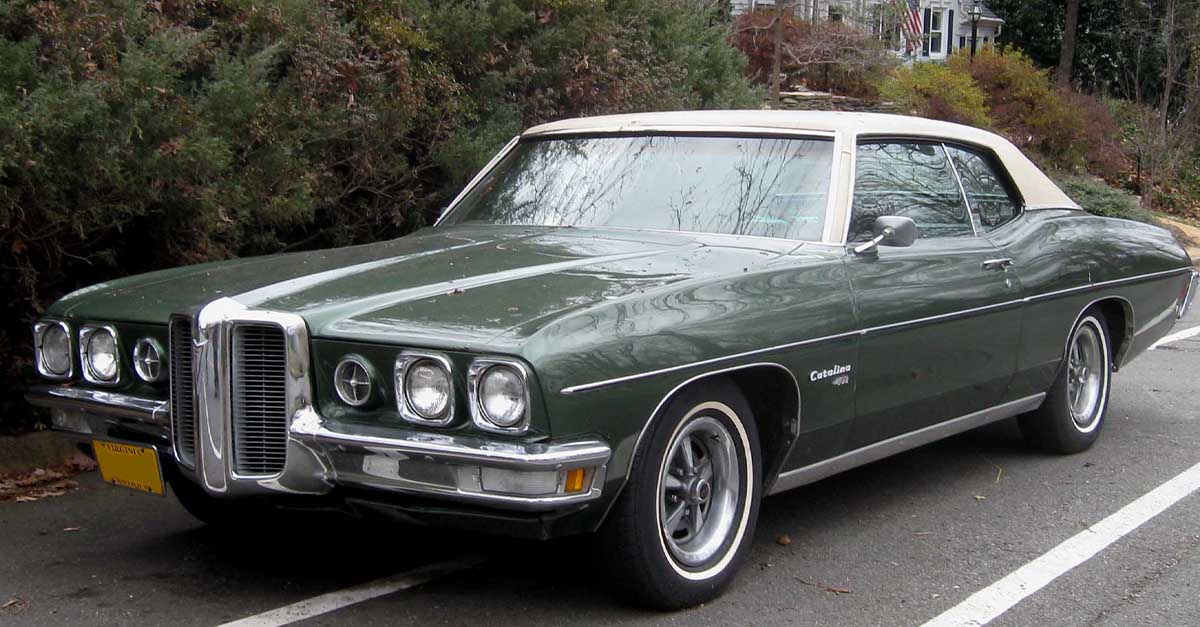It's Not Just You
Buying your first RV is exciting, but a lot of the regret comes not from the trip itself, but from misunderstandings about the RV you’ve just bought. From maintenance misses to layout oversights, these mistakes can cost thousands and sour your first adventures. Here’s a breakdown of the most common RV-specific mistakes new owners make—and how to avoid them.
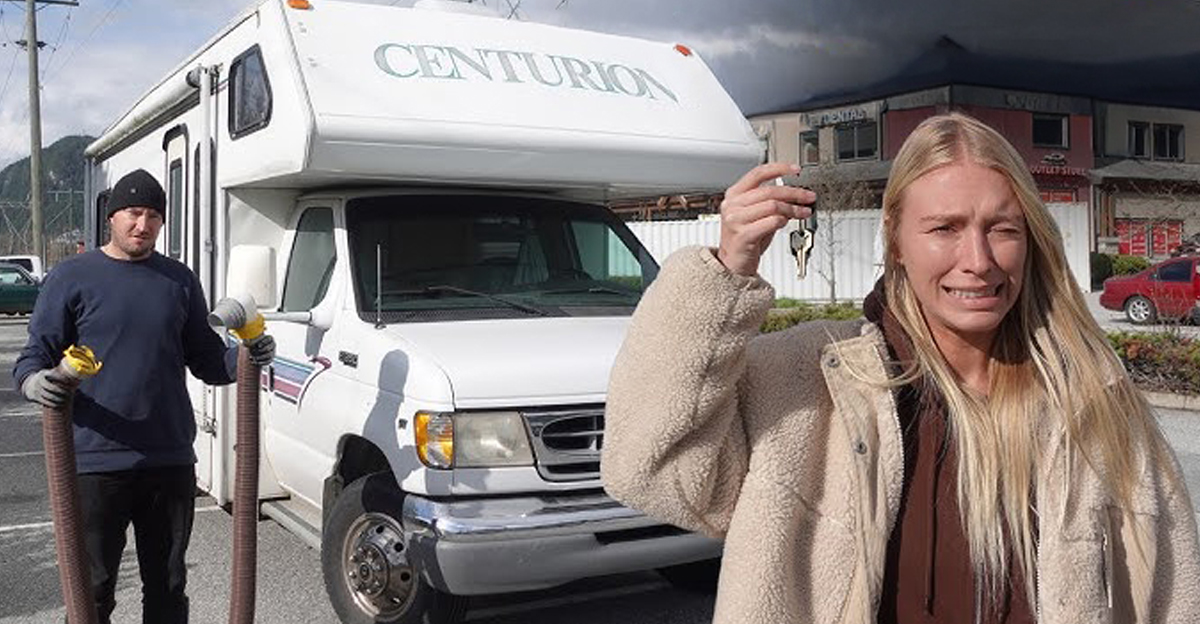

Ignoring the RV’s Weight Ratings
Every RV comes with a Gross Vehicle Weight Rating (GVWR) and cargo carrying capacity. Many first-time buyers don’t realize these limits exist and overload the rig. This stresses suspension, increases stopping distance, and can void warranties.
Solution: Learn your RV’s GVWR and weigh your loaded rig at a truck stop. Staying under the limit keeps you safe and legal.
Skipping a Pre-Purchase Inspection
Many excited buyers skip a professional inspection and end up with hidden issues like roof leaks, water damage, or worn tires. These repairs can add thousands to your cost.
Solution: Hire an RV inspector before you buy. They’ll check seals, appliances, brakes, and frame integrity so you know exactly what you’re getting into.
Neglecting Roof Maintenance
The roof is one of the most vulnerable parts of an RV, but new owners rarely think to inspect it. Cracked sealant or loose seams can quickly lead to major water damage.
Solution: Check your roof every few months. Reseal with RV-approved caulk and clean off debris to prevent costly leaks.
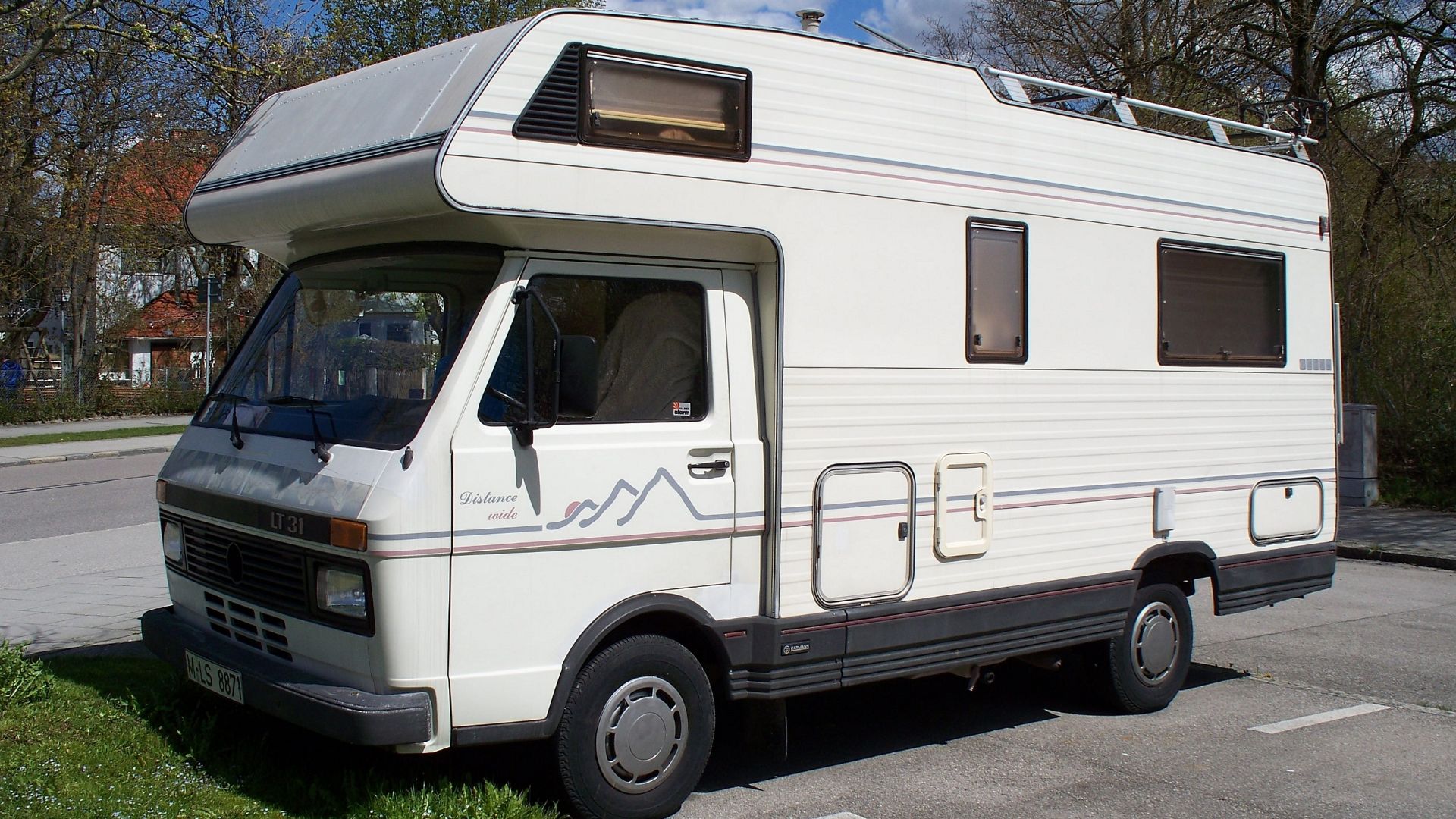 High Contrast, Wikimedia Commons
High Contrast, Wikimedia Commons
Forgetting Battery Care
RV batteries don’t last long if neglected. New RVers often run them down too far or leave them uncharged, leading to early failure.
Solution: Learn whether you have lead-acid or lithium batteries. Use a smart charger, never drain them completely, and check water levels if required.
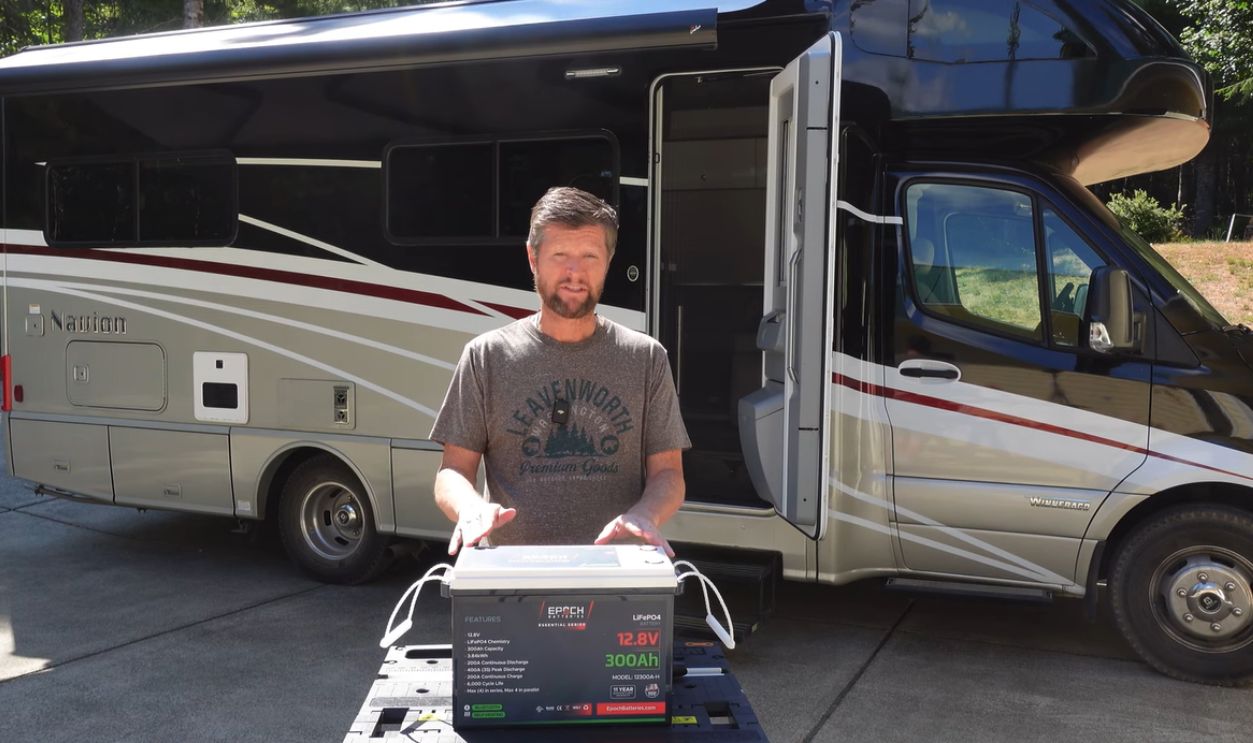 Epoch 300Ah LiFePO4 - The Best Lithium RV Battery?, TTL
Epoch 300Ah LiFePO4 - The Best Lithium RV Battery?, TTL
Not Learning How Propane Systems Work
Propane powers fridges, stoves, water heaters, and furnaces in most rigs. New owners sometimes don’t know how to properly open valves, check for leaks, or switch tanks.
Solution: Use soapy water to check for leaks, turn tanks off while driving, and carry a propane level gauge. Safety comes first with gas systems.
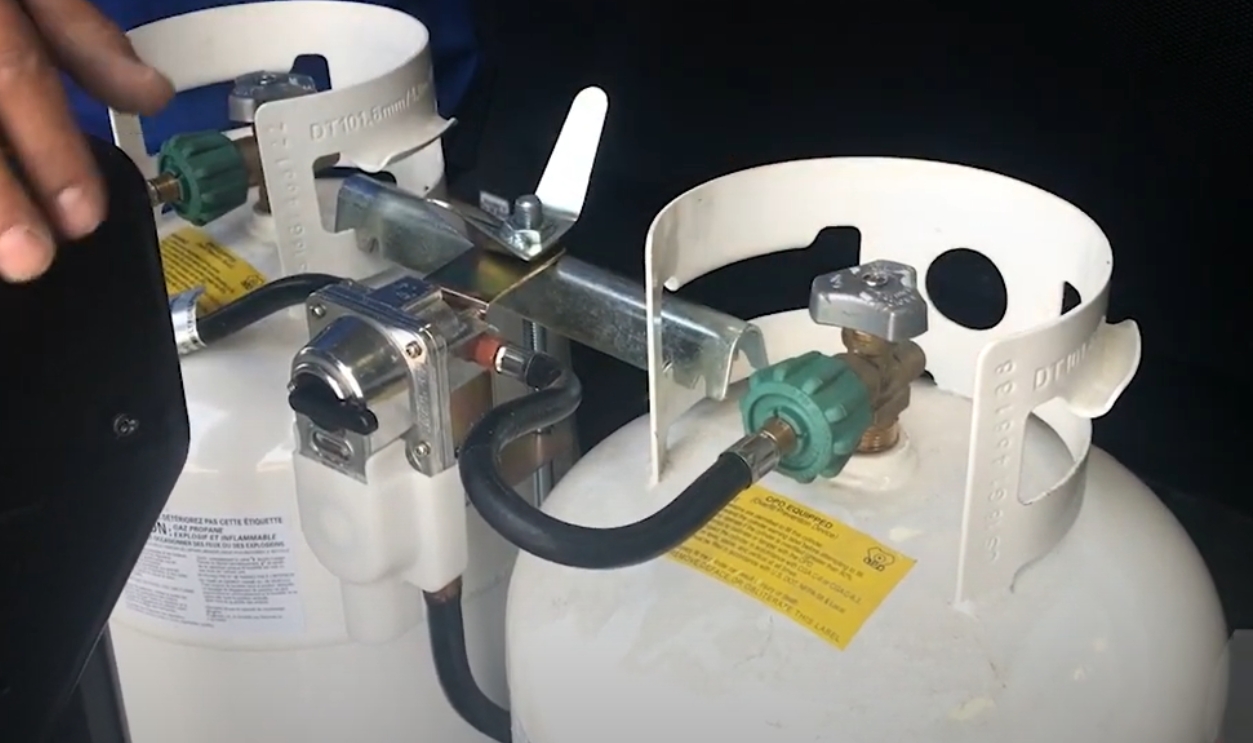 RV Propane System Tech Review | Voyager RV Centre, Voyager RV Centre
RV Propane System Tech Review | Voyager RV Centre, Voyager RV Centre
Overlooking Tire Age
Even if tread looks good, RV tires degrade with age. Many blowouts happen because new RVers don’t realize tires “expire” after 5–7 years.
Solution: Check the DOT date code stamped on the tire sidewall. Replace old tires, even if they look fine, to prevent dangerous highway blowouts.
 RV Repairs: AVOID WAITING MONTHS (Quick & Convenient RV Services), HappilyEverHanks
RV Repairs: AVOID WAITING MONTHS (Quick & Convenient RV Services), HappilyEverHanks
Not Flushing the Water System
RV plumbing can develop smells and clogs if not flushed. Many new owners forget to sanitize tanks, especially if buying used.
Solution: Flush fresh water tanks with a bleach-water mix at least twice a year. Always drain water lines before winter to avoid freezing damage.
 inTech Terra Walk Through, JohntheonemanRVband
inTech Terra Walk Through, JohntheonemanRVband
Forgetting to Lube Slide-Outs
Slide-outs make RVs spacious, but without lubrication, the mechanisms strain and seals crack. First-timers often run them dry until they stick.
Solution: Use RV slide lube spray on gears, rails, and seals. Operate slides periodically even when not camping to keep parts moving smoothly.
 We Toured a Luxurious Off Road Van | Airstream Interstate 24x, Motorhome Luxury
We Toured a Luxurious Off Road Van | Airstream Interstate 24x, Motorhome Luxury
Buying the Wrong Floorplan
It’s easy to fall for flashy interiors and forget about practical needs. Some buyers regret buying a rig without enough sleeping space, storage, or bathroom size.
Solution: Walk through multiple layouts and imagine daily life — cooking, sleeping, showering. Sit in the dinette, lie on the bed, and check cabinet space before you buy.
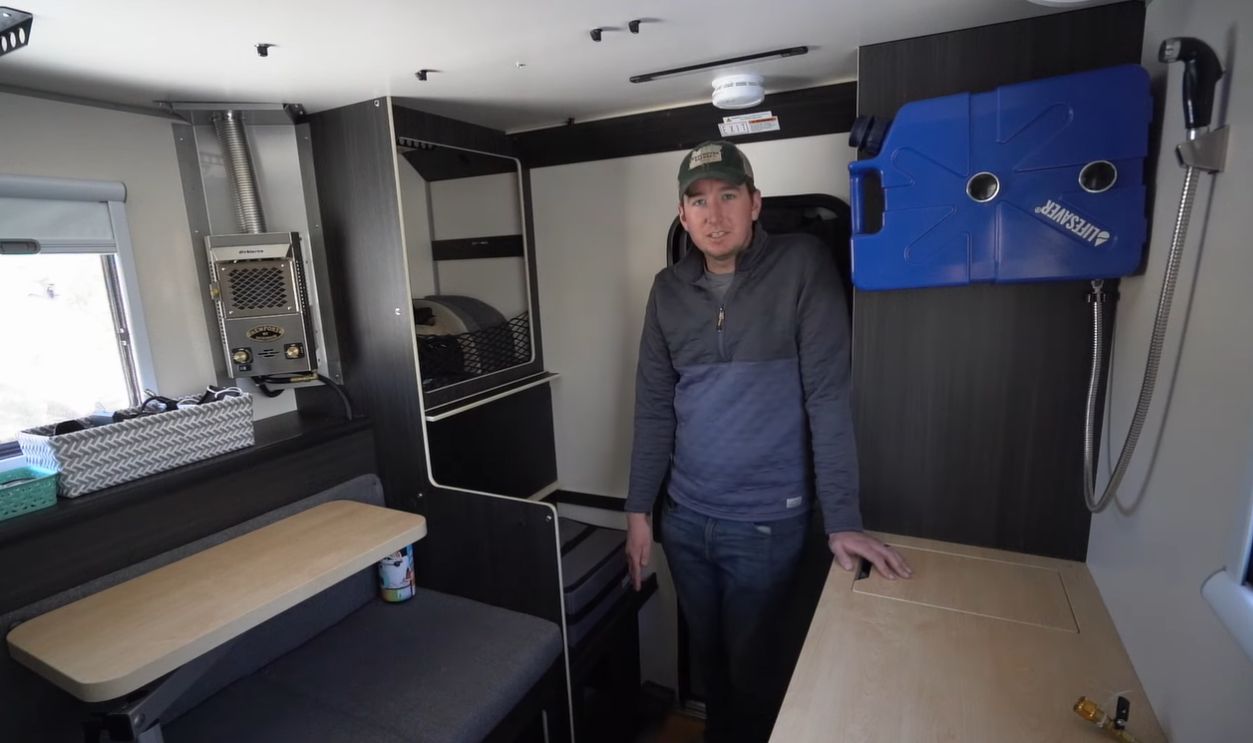 Scout Camper Tour Kenai | The Mortells, The Mortells
Scout Camper Tour Kenai | The Mortells, The Mortells
Using the Wrong Power Cords
Hooking a 50-amp RV into a 30-amp pedestal without the right adapter can trip breakers or damage appliances.
Solution: Carry dogbone adapters for every power setup. Always use a surge protector between your RV and campground power to prevent electrical spikes.
 2025 Tiffin Wayfarer 25LW | Luxury Packed into 25 Feet!, Midtown RV
2025 Tiffin Wayfarer 25LW | Luxury Packed into 25 Feet!, Midtown RV
Forgetting to Check the Fridge Mode
Many RV fridges run on propane or electric. New owners sometimes forget to switch modes, draining batteries or wasting propane.
Solution: Learn how your fridge works. Use propane while driving, switch to electric at shore power, and keep vents clean for efficiency.
 RV Fridge Showdown: Propane vs 12 Volt - Which is King?, Freedom RV
RV Fridge Showdown: Propane vs 12 Volt - Which is King?, Freedom RV
Not Checking Sealant Around Windows
Leaky windows cause mold and rot, but new RVers often don’t notice until it’s too late.
Solution: Inspect window seals each season. Re-caulk with RV sealant as soon as cracks appear. Keeping moisture out will extend your rig’s life.
 inTech RV-Terra Rover-Oasis, RV Video Library
inTech RV-Terra Rover-Oasis, RV Video Library
Running Air Conditioning Without Checking Voltage
Low campground voltage can fry compressors in your RV’s AC. First-timers often plug in without monitoring power quality.
Solution: Use a voltmeter or surge protector with a readout. Don’t run AC below 108 volts. Protecting the system now saves thousands later.
Forgetting to Service the Generator
RV generators need regular oil changes, but new owners often ignore the schedule. Sitting too long without running can also gum up carburetors.
Solution: Run your generator under load monthly and change oil as recommended. A healthy generator means reliable power when you’re off-grid.
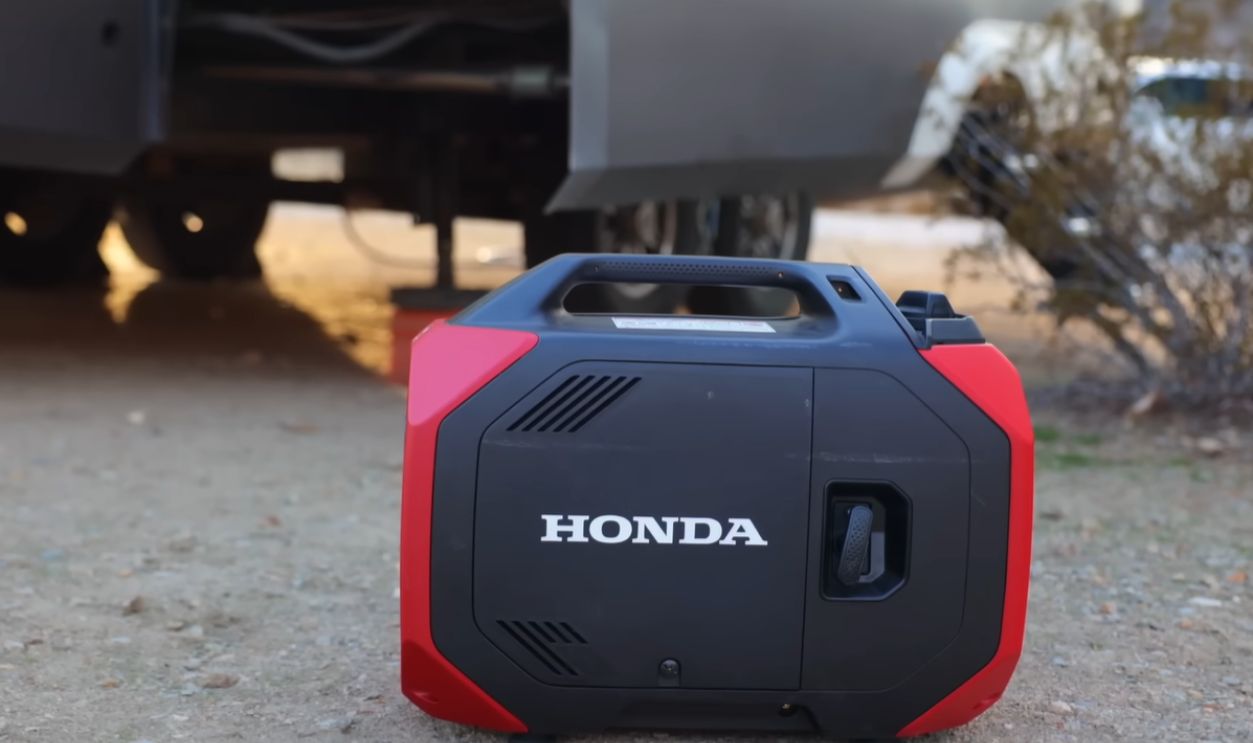 ULTRA-QUIET RV Generator: New, Light, and Powerful!, HappilyEverHanks
ULTRA-QUIET RV Generator: New, Light, and Powerful!, HappilyEverHanks
Misusing Stabilizers
First-time RVers sometimes crank down stabilizers thinking they’re for leveling, which can bend frames.
Solution: Level with blocks first, then drop stabilizers to stop shaking. They’re for stability, not lifting.
 The Easiest Way To Level Your RV! (Andersen VS Beech Lane Ramp Levelers), RV Gear & Far
The Easiest Way To Level Your RV! (Andersen VS Beech Lane Ramp Levelers), RV Gear & Far
Not Cleaning the Furnace Intake
Blocked furnace intakes lead to poor heating and even carbon monoxide risks. Dust, wasp nests, and debris build up quickly.
Solution: Inspect and clean furnace intakes before every cold season. Use screens to keep bugs out but allow airflow.
Forgetting to Maintain the Awning
Awnings tear easily if left dirty or rolled up wet. First-time owners often ruin them in a season.
Solution: Clean fabric with mild soap, let it dry before rolling up, and retract during strong winds. A well-cared-for awning lasts years.
 RecPro RV Manual and Electric Cassette Awnings - AWESOME AWNINGS!, RecPro
RecPro RV Manual and Electric Cassette Awnings - AWESOME AWNINGS!, RecPro
Not Learning the Breaker Panel
RV electrical panels can be intimidating. Many new owners panic when something trips and don’t know how to reset or diagnose.
Solution: Label breakers, learn which powers what, and practice resetting them. Understanding your panel avoids unnecessary service calls.
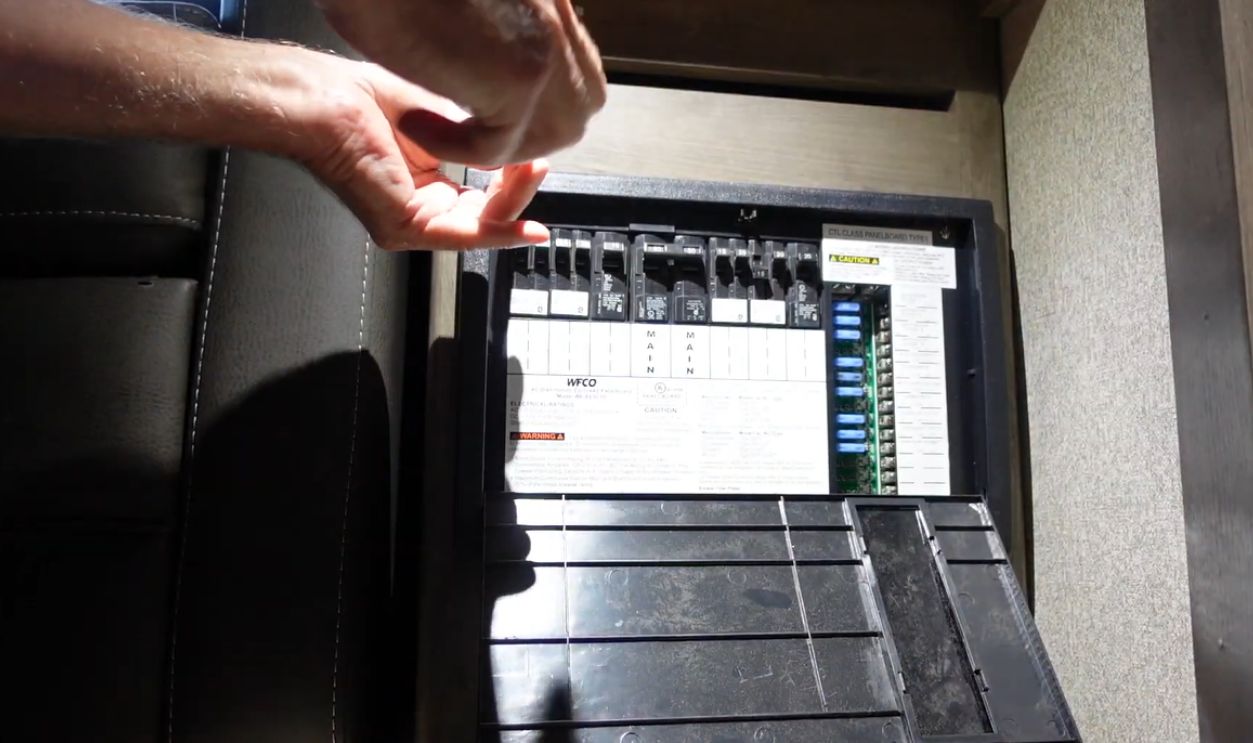 RV Electrical Circuit Breaker Panel Checkout: ARE ALL SCREWS TIGHT?, Pm Tips
RV Electrical Circuit Breaker Panel Checkout: ARE ALL SCREWS TIGHT?, Pm Tips
Overlooking Hitch Setup
If towing, hitch height and weight distribution are critical. Many beginners just hook up and go, causing sway or uneven wear.
Solution: Use a weight distribution hitch and sway control. Adjust so your rig sits level and stable on the road.
 CURT TruTrack™ 2P Weight Distribution Hitch Installation, CURT
CURT TruTrack™ 2P Weight Distribution Hitch Installation, CURT
Not Cleaning the Air Conditioner Filter
Dirty filters reduce cooling efficiency and strain your AC. Many owners don’t realize the filters are removable.
Solution: Clean or replace AC filters monthly during camping season. Better airflow means cooler temps and less power draw.
 RV Air Conditioner Disposable Air Filter - No More Mold Spores, Pollen, or Dust - Review, RV Habit
RV Air Conditioner Disposable Air Filter - No More Mold Spores, Pollen, or Dust - Review, RV Habit
Forgetting About Brake Maintenance
Towable RVs have electric brakes that need adjustment. First-time owners sometimes never test them until stopping power is weak.
Solution: Test brake controllers before each trip. Adjust gain to match your trailer weight and get brakes serviced annually.
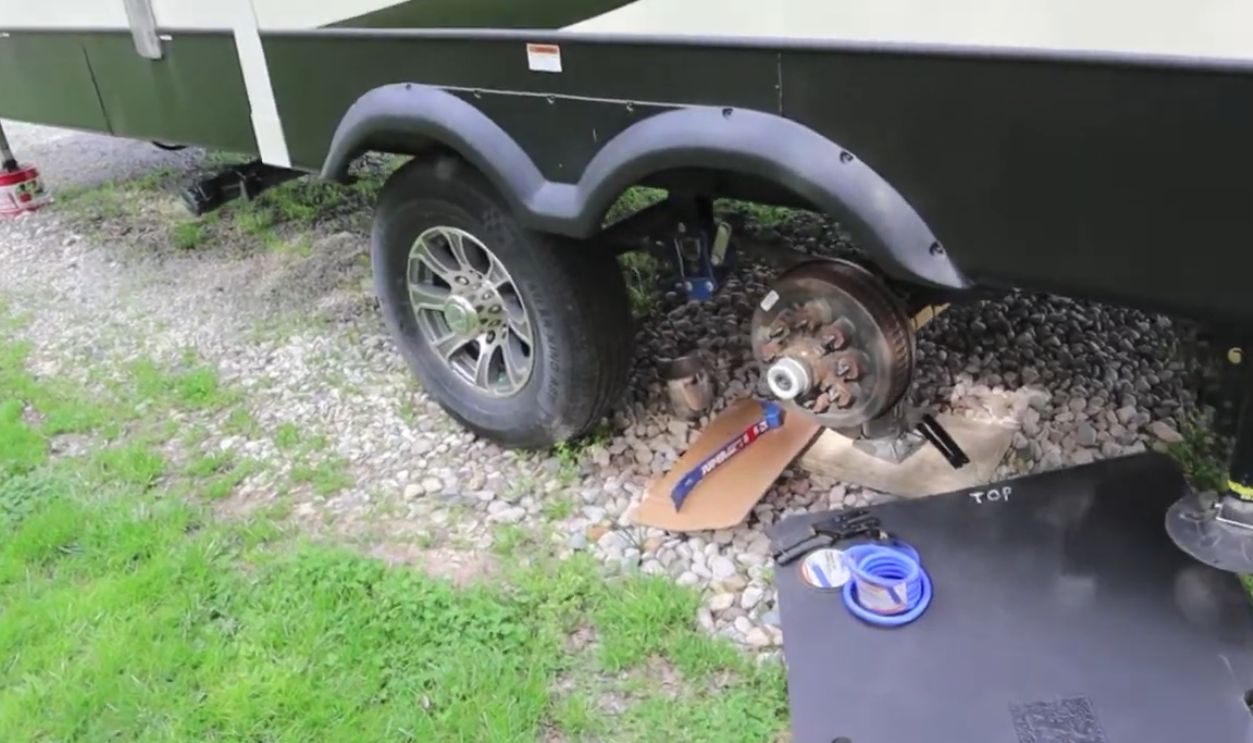 RV Electric Brakes Preventive Maintenance on Wiring EASY DIY, Pm Tips
RV Electric Brakes Preventive Maintenance on Wiring EASY DIY, Pm Tips
Leaving Batteries Connected in Storage
Long-term storage drains batteries flat, which ruins them. Many new RVers park their rig and forget.
Solution: Disconnect or use a battery disconnect switch. Better yet, keep a trickle charger connected to maintain health.
Using Household Cleaners on RV Surfaces
Regular cleaners can damage RV plastics, seals, and finishes. New owners often scrub with bleach or abrasive products.
Solution: Use RV-specific cleaners for roofs, tanks, and interiors. They’re designed to clean without breaking down protective coatings or seals.
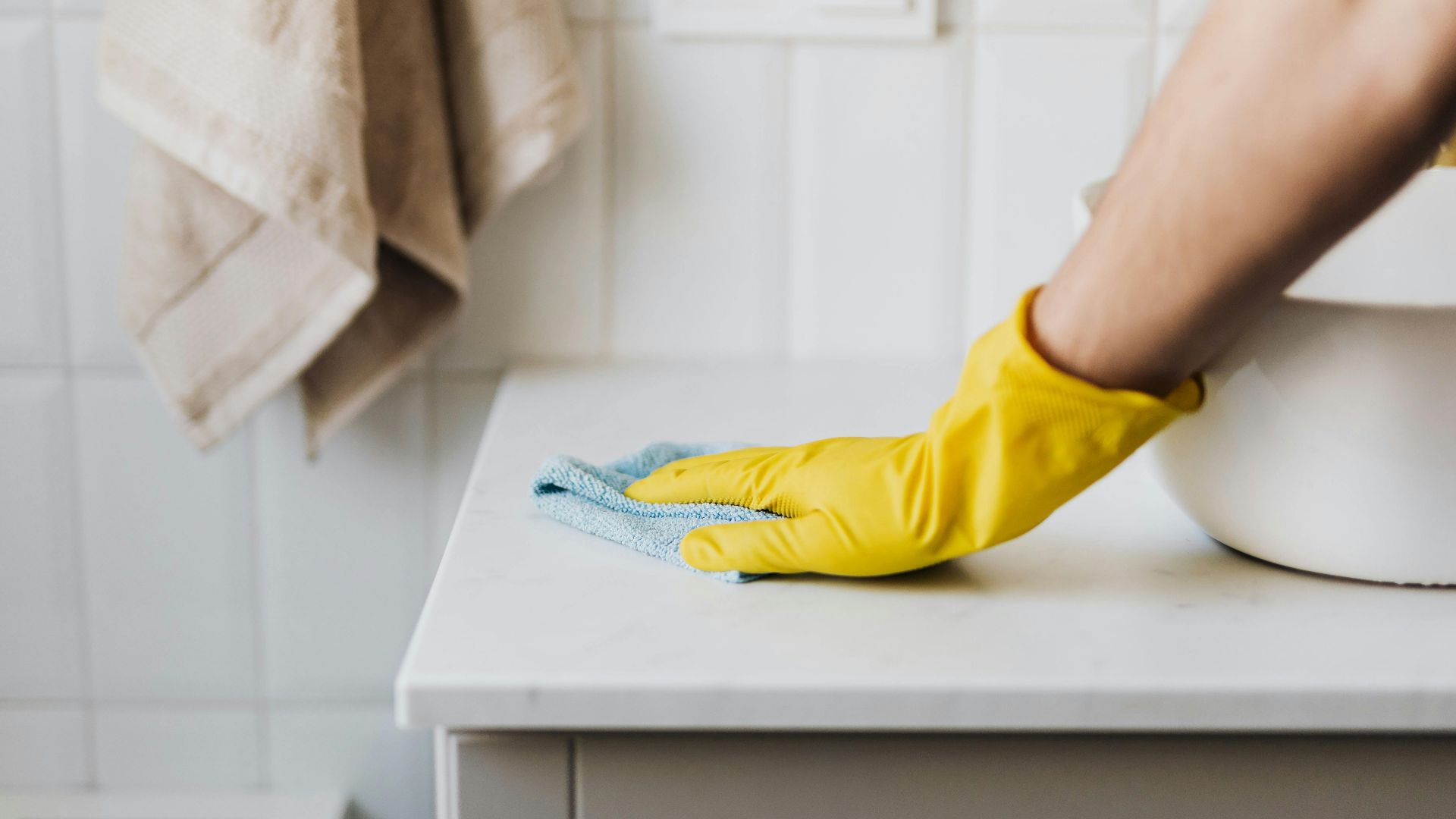 Photo By: Kaboompics.com, Pexels
Photo By: Kaboompics.com, Pexels
Not Checking Appliance Vents
Blocked fridge or water heater vents can lead to overheating and damage. Birds and insects love to nest in them.
Solution: Install vent covers and inspect regularly. Proper airflow keeps appliances safe and efficient.
Forgetting to Grease Wheel Bearings
Towable rigs rely on wheel bearings that need lubrication. Neglecting them can cause a wheel to seize at highway speeds.
Solution: Grease bearings annually or as recommended. Carry spare parts for long trips just in case.
You May Also Like:
The Most Reliable Cars Ever Built
RVs With The Most Luxurious Interiors
Best RVs For Off-Grid Adventures
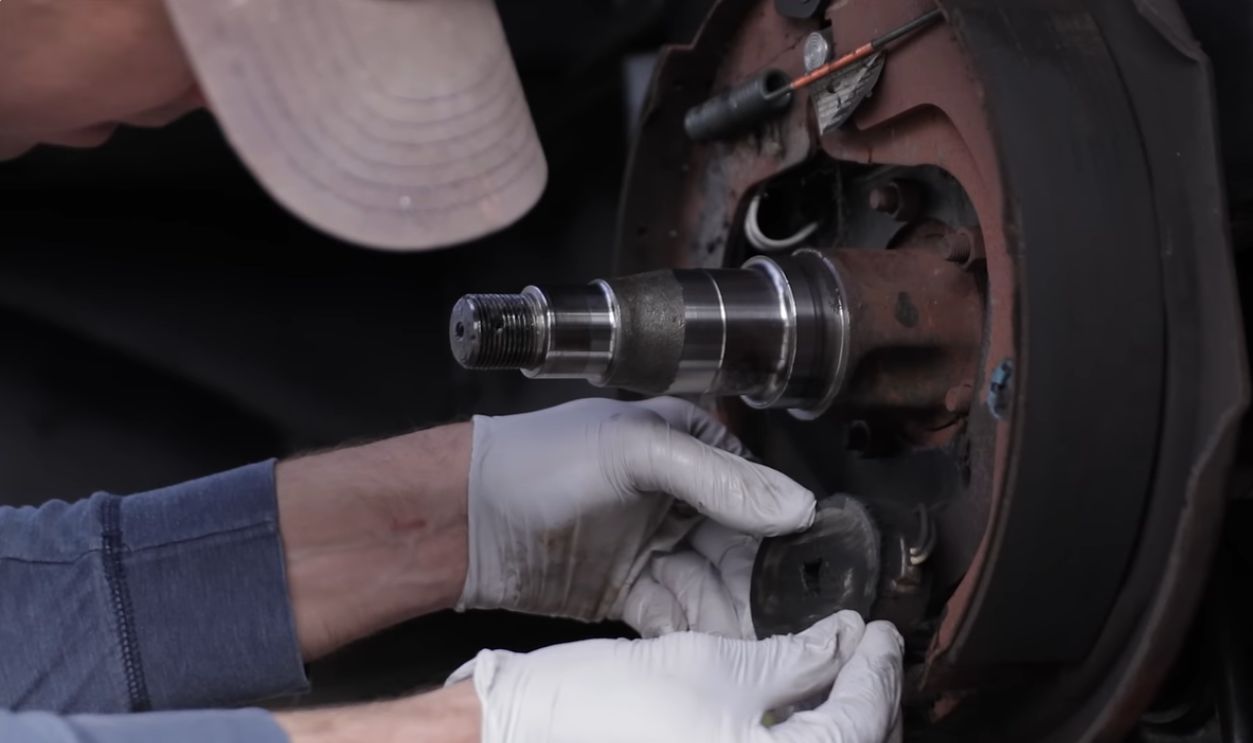 RV Wheel Maintenance, What You Need To Know., All About RV's
RV Wheel Maintenance, What You Need To Know., All About RV's


